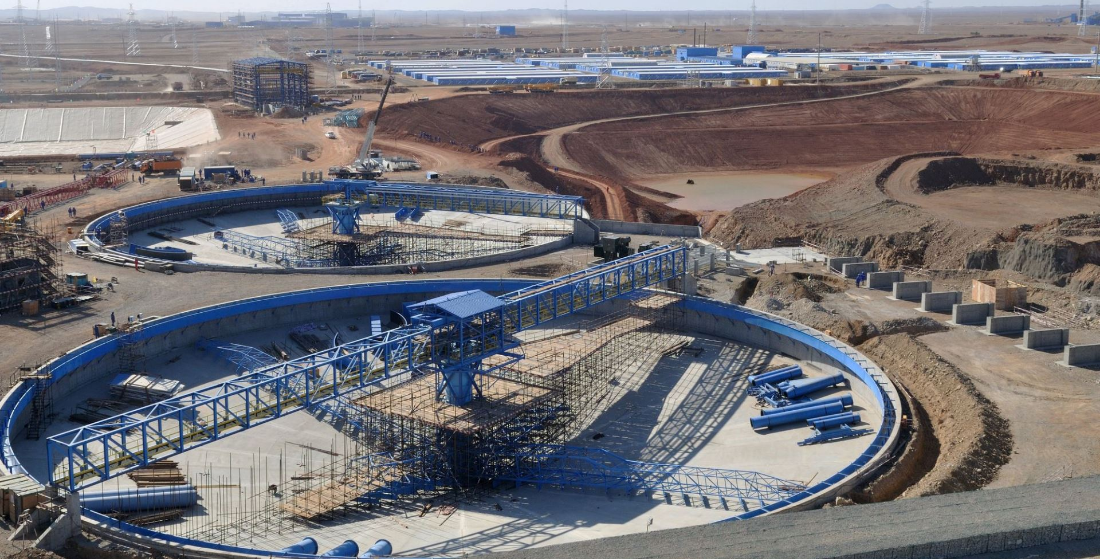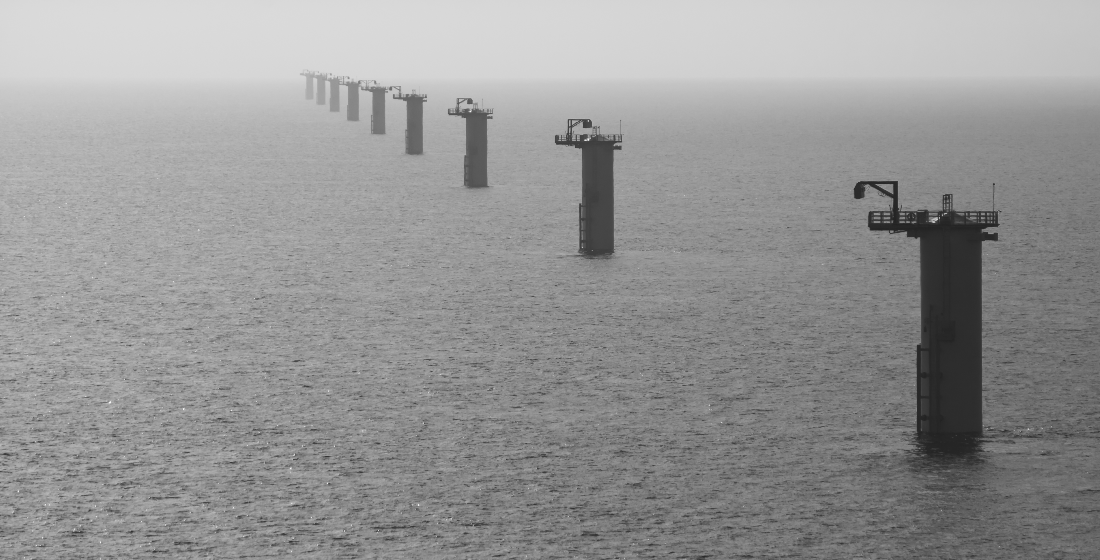Pit bull or pit bear?
The problems at the Oyu Tolgoi mining project in Mongolia mean the sponsors, Rio Tinto via its ownership of Turquoise Hill Resources, will have to raise $1 billion-plus more debt for the scheme. But is additional debt or a full refinancing the more likely outcome?

Three years on from winning multiple awards for a $4.4 billion multi-sourced project financing in 2015, pretty much everything that could go wrong has gone wrong at the $5.3 billion Oyu Tolgoi copper/gold expansion project in Mongolia.
Sponsored by Turquoise Hill Resources (66%), which is majority-owned by Rio Tinto, and the Mongolian government (34%), costs at the project are spiralling. The mine’s underground expansion is predicted to come in up to $1.9 billion over budget – a figure that does not include the $1 billion-plus of debt that still needs to be raised by the sponsors for the Tavan Tolgo power project, which will both power the mine and provided capacity for domestic use.
Rio Tinto’s new estimate for capex on the project is now $6.5 billion to $7.2 billion, and dependent on which mine design options are used, first sustainable production has been pushed back to between May 2022 and June 2023, a delay of 16 to 30 months on the original feasibility study estimate.
The scheme has also been at the centre of an anti-corruption investigation that has resulted in the arrest of two former prime ministers and a former finance minister. And a parliamentary working group, established last year to examine the original Oyu Tolgoi project agreements, has recommended that the 2015 Dubai Agreement – the basis for the extension project – should be scrapped.
The core of the political row dogging the project is the share of project benefits Mongolia is getting out of the deal. Although Rio Tinto claims to have spent “$8.3 billion in-country in the form of salaries, payments to Mongolian suppliers, taxes, and other payments to the government” between 2010 and 2018, Mongolia will not earn a dividend from the mine until 2041 when the dividend flow is predicted to have repaid the state’s share of the project costs.
Furthermore, a report in 2018 by Dutch NGO the Centre for Research on Multinational Corporations (SOMO) claimed that tax arrangements in the Oyu Tolgoi investment agreement resulted in a $230 million tax revenue loss for Mongolia. The report, which was arguably flawed, nevertheless added fuel to an already heated dispute between the project sponsor and the Mongolian tax authorities over withholding tax payments.
Despite all the problems at the project, Rio Tinto’s credit rating remains solid, with Fitch affirming its rating on 29 July and stating that it "did not have any earnings from the block cave expansion in its rating case forecast for Rio Tinto due to the complexity of the project and lack of full visibility around the commissioning schedule.”
The ratings affirmation makes sense. Although the project’s cost increase will mean Rio Tinto and Turquoise Hill having to raise new debt, the debt service undertaking in the project documentation has an agreed capacity of $6 billion with an option of an additional $1.6 billion debt – in short, the sponsors built some leeway into the original deal.
The $4.4 billion expansion financing – a five-tranche deal signed in 2015 with tenors ranging from 12 to 15 years – has some very solid backers. The deal was lead-arranged by the IFC, EBRD, BNP Paribas, EDC and Standard Chartered. The facilities comprise: an $800 million 15-year A loan priced at a margin of 378bp over Libor pre-completion and 478bp post-completion; a $1.6 billion 12-year B loan provided by the same commercial banks and priced at 340bp over Libor pre-completion and 440bp post-completion; a $700 million 12-year MIGA-guaranteed loan priced at 265bp over Libor pre-completion and 365bp post-completion; a $900 million 14-year ECA-backed tranche priced at a margin of Libor plus 365bp pre-completion 465bp post-completion; and a $400 million 13-year tranche from US Exim with a margin at the fixed commercial interest reference rate based on US Treasury rates determined at time of first disbursement.
The full lender line-up for the deal includes EDC, EBRD, IFC, US Exim, EFIC, BNP Paribas, ANZ, BNP Paribas, CIBC, Credit Agricole, FMO, HSBC, ING Bank, Intesa Sanpaolo, KfW IPEX, MUFG, National Australia Bank, Natixis, Societe Generale, Standard Chartered and SMBC.
Eric Rasmussen, director of Natural Resources at the EBRD, stated last week that the DFI was willing to provide more funding for the project, an updated financial model for which is expected to be available by October.
But a full refinancing rather than just an add-on facility is very likely under consideration. The project may be delayed but it still has 3.5 years of construction under its belt since financial close and, according to Rio Tinto, a more detailed understanding of the technical risk.
Furthermore, given all-in pricing on the 2015 deal was 600bp over Libor (including upfront and ongoing fees, and an annual completion support), there is clearly room for a margin cut and tenor extension on at least some of the debt, albeit if the sponsors and Mongolia can come to an agreement that mitigates the political risk on the project, which, given the bickering over the Dubai Agreement, is much higher than it needs to be at the moment.
Oyu Tolgoi is a hard sell – but remove much of the political risk and the scheme becomes eminently bankable, particularly given the original extent of DFI and ECA support. And initial signs suggest there is appetite, at the very least at the EBRD, for upping that backing.
Now time to get up to speed on the markets.
Here's our exclusive TXF Essentials subscriber content
TXF Global: Bpifrance on modernising export finance
At TXF Global last month, Maelia Dufour, head of international relations at Bpifrance Export Insurance, outlined the challenges of digitisation in export finance, compliance procedures, and the need to modernise the OECD Consensus on export credits.
Expert opinion: Will sanctions kill the dollar?
Matthew Oresman and Henrietta Worthington, partner and associate at Pillsbury Winthrop Shaw Pittman LLP, take a look at why they think US policy represents the greatest threat to the world’s leading currency.
Risky business: China trade turns inward
In the third of this series of Risky Business podcasts Coriolis Technologies CEO Rebecca Harding talks to TXF’s Katharine Morton about how it’s not all about trade wars for China trade, but it doesn’t help.
Plus, to top things off..
the news you thought you had but didn't.
Allego syndication attracting institutional appetite
Syndication of Meridiam’s €150 million ($168 million) hybrid project/corporate financing for its Netherlands-based electric vehicle (EV) charging infrastructure business Allego has attracted commitments from SCOR Investment Partners and Edmond de Rothschild Asset Management, and more institutional investors are expected to join.
BAFOs in for A9 motorway expansion
Two of the three bidders shortlisted last year for the €500 million ($587 million) A9 Badhoevedorp–Holendrecht motorway expansion PPP in the Netherlands have submitted BAFOs for the scheme.
Arclight sounds out buyers for Bizkaia
Arclight Capital Partners is sounding out prospective buyers for its 100% shareholding in Bizkaia Energia – the owner of the 755MW Amorebieta combined-cycle gas turbine (CCGT) power plant in Spain.
Innogy testing appetite for Kaskasi offshore wind
Innogy and financial adviser MUFG are said to be in initial talks with banks for financing for the 325MW Kaskasi offshore wind project in Germany.
Chexim in for Banja Luka-Prijedor motorway PPP
Chinese state-owned transport firm Shandong Hi-Speed Group Corporation is expected to reach full financial close next summer (2020) on the €300 million ($337 million) Banja Luka-Prijedor motorway PPP in Bosnia and Herzegovina.
CDG Express rolling stock financing closed
The Hello Paris consortium – comprising Keolis and RATP Dev – has closed the financing backing the CDG Express rolling stock concession which will connect central Paris with Charles de Gaulle Airport.
19 bids for EDC solar project
State-owned Electricite du Cambodge (EDC), with advisory from ADB, has prequalified 19 bidders from the 26 that submitted offers for the 60MW Chhnang/Speu Solar PV Phase I project in Cambodia.
Jefferies appoints new head of Latam DCM
Jefferies has appointed Juan Carlos Lorenzo as head of its Latam debt capital markets business.
EOI bids in for Footscray Hospital PPP
Three bidding teams – Lendlease, Multiplex and John Holland – submitted expressions of interest today in the PPP tender process for the new A$1.495 billion ($1.05 billion) Footscray Hospital in Australia.
Rabobank appoints new global head of energy & metals within TCF
Rabobank has appointed a new global head of energy & metals financing within the trade & commodity (TCF) department.
Ex-Rosneft CFO joins Mizuho as head of EMEA investment banking
Rosneft's ex-CFO, Slava Slavinskiy, is joining Mizuho International as head of investment banking for Europe, the Middle East and Africa (EMEA) on 12 August 2019.
More details emerge on Brisbane's Cross River Rail PPP deal
On 1 July 2019, Pulse Consortium – comprising Pacific Partnerships (49%), DIF, BAM PPP PGGM Infrastructure Cooperatie and Ghella Investments & Partnerships – closed a A$2 billion ($1.39 billion) six-year senior term loan with 11 banks to finance the A$5.4 billion Cross River Rail PPP in Brisbane, Australia.
Jafura cogen RFP out to market
Saudi Aramco has issued a request for proposals (RFP) for the 270-320MW Jafura cogeneration project. Bids are due by December 1.
Bpifrance to support Satria satellite financing
Sponsors of the Satelit Republik Indonesia (Satria) satellite in Indonesia – Pasifik Satelit Nusantara (PSN) Pintar Nusantara Sejahtera, Nusatara Satelit Sejahtera and Dian Semesta Sentosa, part of the Sinar Mas Group – are expected to tap ECA support to finance the $300-$400 million project.





